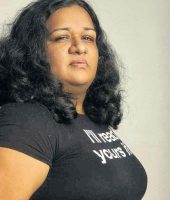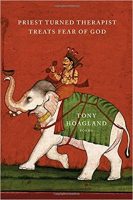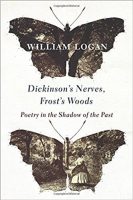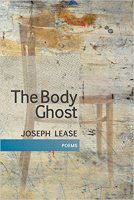June 1, 2018
Edited by David Sanders
Specimen Days
1679—Johan Runius, Swedish poet (Dudaim), is born.
1713—Johan Runius, Swedish poet (Dudaim), dies at 34.
1858—William W Campbell, Canadian poet (Beyond the Hills of Dream), is born.
1862—Antonio JdC Feijo, Portuguese diplomat/poet (Bailatas), is born.
1878—John Masefield, British writer and poet (Salt-Water Ballads), Poet Laureate (1930-67), born in Ledbury, Herefordshire (d. 1967).
1882—John Drinkwater, English poet/playwright (Abraham Lincoln), is born.
1968—[Johan] Erik Lindegren, Swedish poet/interpreter, dies at 57.
1970—Giuseppe Ungaretti, Italian poet (Hermeticism) and journalist, dies at 82.

I must go down to the seas again, to the vagrant gypsy life,
To the gull’s way and the whale’s way where the wind’s like a whetted knife;
And all I ask is a merry yarn from a laughing fellow-rover,
And quiet sleep and a sweet dream when the long trick’s over.
—from “Sea Fever” by John Masefield
“I must go down to the seas again, to the vagrant gypsy life” – John Masefield
World Poetry
T&T Poets Shortlisted for Forward Prizes …the Oscars of Poetry

Two T&T writers are in the running for major international literary awards, awarded by the Forward Prizes for Poetry in London. Vahni Capildeo, a Trinidadian poet based in the UK, has been shortlisted for the 2018 Forward Prize for Best Collection with her latest book, Venus as a Bear. Capildeo is a previous winner of a Forward Prize in 2016, and has now achieved the rare feat of being shortlisted again for the award just two years later. She is joined by Shivanee Ramlochan, whose her debut book of poems—Everyone Knows I Am a Haunting—has been shortlisted for the 2018 Felix Dennis Prize for Best First Collection.
Pirate MP Apologizes over Approval of Communist Poet for State Honor
The Pirate Party’s deputy chairman of the lower house, Vojtěch Pikal, has apologised for his party’s involvement in the approval of Communist poet Karel Sýs for a state honour. MPs from the Communists, ANO, Freedom and Direct Democracy, the Social Democrats and the Pirates backed a proposed list of 28 honours candidates, including Mr. Sýs. Mr. Pikal said he had failed to look closely at the nominees.
Two Trinidad and Tobago writers are in the running for major international literary awards.
Recent Reviews
Poetry in Review: Annemarie Ní Churreáin & Miller Oberman
by Danielle Chapman
A survey of ten recent, celebrated poetry books suggests that today’s poets have, in our unprecedented times, come upon an unprecedented discovery: each of us, it turns out, has a body. Actually, each of us has the body. While the corpus has been electric since Whitman at least, references to “the body” have, in our times, become something of an epidemic. In almost every book in my stack, “the body” looms portentously (but without clear intention) through poem after poem, leaving me to wonder, as I sit here on my own bodily butt (I’m pretty sure it’s not the butt), narrowing my eyes (deepening some crow’s feet that I hope don’t qualify as the crow’s feet)–what, for the life of me, “the body” is, other than, that is, a body.
Emily Berry’s Stranger, Baby
by Declan Ryan
Writing in the introduction to his Fifty Poems in 1988, Ian Hamilton commented on his younger self, ‘But did I truly think that poetry, if perfect, could bring back the dead? In some ways yes, I think I did.’ Hamilton was at the extremist end of ‘faith’ in the lyric’s potential, a belief that poetic language might reach beyond ordinary dialogue: ‘While writing a poem, one could have the illusion that one was talking in a magic way to the subject of the poem. One might even think that this is doing some good, making things better.’ The ‘you’ in Hamilton’s poems was confined to a few, imagistic details, in terse addresses which owed a debt to Thomas Hardy’s poems of 1912 and 1913, written by Hardy in the throes of guilt which followed his wife Emma’s death. A poetic version of esprit de l’escalier; all the tenderness and devotion he hadn’t shown during their marriage was expressed too late, addressed to Emma’s wished-for ghost as if she were capable of listening. As with Hamilton, any comfort provided was, ultimately, only for the poet, but the instinct to speak to the dead in the hope of getting through casts the poem into a secular equivalent of the Eucharist, aiming to summon a real presence through linguistic ritual. Denise Riley’s extraordinary elegy for her son, ‘A Part Song’, demonstrates some of this magical thinking.
'Kindest Regards' Serves Up the Quietly Subversive Poetry of Ted Kooser
Former US poet laureate Kooser has the gift of discovering literary vignettes where others fail to see below the surface.
by Danny Heitman
Ted Kooser grew up in Iowa and now lives in rural Nebraska. For five decades, he’s written poetry in a part of the world often rudely dismissed as flyover country – that middle place jetsetters zoom past on their way to iconic cities on either coast. It’s a region regarded widely as a land where not much happens, presumably poor soil for poetry to grow. Kooser’s poems, the best of which have been gathered in his new retrospective, Kindest Regards, answer that cultural condescension by being mildly subversive, unveiling literary vignettes where, at first glance, it does seem that not much of anything is going on. Yet not far beneath the surface of the narrative, something profound inevitably glows.
New Poetry by Tracy K. Smith, Aimee Nezhukumatathil, Shauna Hannibal
by Diana Whitney
The U.S. Poet Laureate Tracy K. Smith examines American history in her fourth collection, Wade in the Water (Graywolf; $24). With formal precision and clarity, Smith’s poems dance the boundaries between private and public, give voice to the voiceless, and shine with a resolute spiritual vision. “History is a ship forever setting sail,” she writes, charting the waters of the past to illuminate contemporary culture. As always, Smith commands authority on the page. She erects a graceful scaffold of capitalized first letters and often shapes stanzas into couplets or quatrains, an order that frames her wide-ranging intellect. Smith, who won the Pulitzer Prize for her third book, “Life on Mars,” is also an acclaimed memoirist and mother of three. Her motherhood lyrics resonate alongside the political poems and reveal the depth of her compassion.
Ted Kooser grew up in Iowa and now lives in rural Nebraska. For five decades, he’s written poetry in a part of the world often dismissed as flyover country.
Broadsides
Hart Crane in Greenwich Village
by Francesca Bratton
In his 1921 flâneur’s guide to New York City, Hints to Pilgrims, the dramatist and essayist Charles S. Brooks briefly interrupts his rhapsodies over the city’s ‘restaurants and theatres…bridges…the shipping…parks…fifth avenue…electric signs’ with a quick sketch of its ‘quartier Latin’, Greenwich Village. Brooks’s interlude revolves around a brief meeting with a ‘not entirely famous’ young poet at his lodgings ‘just North of Greenwich Village’ in the Spring of 1919. The poet, whose ‘verses’, we are told, are ‘of the newer sort’, was the twenty-year-old Hart Crane, then living above the offices of Margaret Anderson and Jane Heap’s Little Review (which Brooks chauvinistically dubs ‘The Shriek’) and whose career began in the pages of the Village’s lively journals.[1]
The Afterlives of Georg Trakl
by John Knowles
In the early 1950s, the American poet James Wright, wandered by mistake into the wrong classroom while studying at the University of Vienna and joined a seminar on the poet Georg Trakl. He describes how the professor leading the seminar read Trakl’s poems slowly, with enormous patience, in the twilit room. The only other participants are described as a few old men who “resembled Bowry bums in America”, but something in the clear, softly spoken reading of the poems, meant that Wright returned to that darkening room “every afternoon for a month, through winter and autumn”. Trakl’s poems have the capacity to draw the reader, even unwillingly, into his own world. They are poems that seem to wait on the reader, inviting reading and re-reading.
In the early 1950s, the American poet James Wright, wandered by mistake into the wrong classroom and joined a seminar on the poet Georg Trakl.
Drafts & Fragments
Royal Wedding: Meghan Markle Left Guests in Tears at Reception with Emotional Poem Dedicated to Prince Harry
Irish President Pays Tribute to Seamus Heaney During Museum Visit

President of Ireland Michael D Higgins has visited the museum dedicated to the poet Seamus Heaney in Bellaghy.
Poetry In the News
'Teach This Poem' Is the Winner of the Innovations in Reading Prize from the National Book Foundation
Cambridge to Imprint More Sidewalk Poetry this Fall

In the fall, a fresh batch of poems will be imprinted onto new sidewalks under the feet of Cambridge’s passing pedestrians.
New Books
Priest Turned Therapist Treats Fear of God: Poems by Tony Hoagland
[Paperback] Graywolf Press, 88 pp., $16.00

Tony Hoagland’s poems interrogate human nature and contemporary culture with an intimate and wild urgency, located somewhere between outrage, stand-up comedy, and grief. His new poems are no less observant of the human and the worldly, no less skeptical, and no less amusing, but they have drifted toward the greater depths of open emotion. Over six collections, Hoagland’s poetry has gotten bigger, more tender, and more encompassing. The poems in Priest Turned Therapist Treats Fear of God turn his clear-eyed vision toward the hidden spaces―and spaciousness―in the human predicament.
Feminists Are Passing from Our Lives by Leslie McGrath
[Paperback] The Word Works, 98 pp., $17.00
Feminists Are Passing from Our Lives takes a searching look back over the years since the so-called sexual revolution, the earlier waves of feminism, the civil rights movement, a look at our daily struggle to live fully, justly, fairly, and with heart. Can it be done without heartbreak? No, says McGrath, but we're not done yet. The poems have echoes of a formal training, but are as muscualr and adventurous as their free-verse forebears as well. This is a book for fighters and thinkers, for those who want our days to accumulate into something of substance and beauty, in spite of our mistakes and no matter what we face.
Dickinson's Nerves, Frost's Woods: Poetry in the Shadow of the Past by William Logan
[Hardcover] Columbia University Press, 416 pp., $35.00

In Dickinson’s Nerves, Frost’s Woods, William Logan, the noted and often controversial critic of contemporary poetry, returns to some of the greatest poems in English literature. He reveals what we may not have seen before and what his critical eye can do with what he loves. In essays that pair different poems―“Ozymandias,” “On First Looking Into Chapman’s Homer,” “In a Station of the Metro,” “The Red Wheelbarrow,” “After great pain, a formal feeling comes,” and “Stopping by Woods on a Snowy Evening,” among others―Logan reconciles history and poetry to provide new ways of reading poets ranging from Shakespeare and Shelley to Lowell and Heaney.
Interval by Judith Bishop
[Paperback] University of Queensland Press, 88 pp., $19.95
Bishop’s attentive poetic gaze unfailingly reveals the luminous. In Interval, her poems – many addressed to a lover, or to children – explore intimacy, solitude and the ‘chemical mess’ of human love. As Carl Phillips said of Event, ‘These are splendid poems indeed, whose intelligence, vision, and sheer beauty at every turn persuade.’
The Body Ghost by Joseph Lease
[Paperback] Coffee House Press, 112 pp., $16.95

"Promise me the rich can’t sleep," Joseph Lease begs in The Body Ghost,offering poems as light on the page as nursery rhymes, and as powerful as prayer. Here, verse conjures up the body in pain, the body politic in collapse, and the tensile strength of the filaments that connect us.
“Promise me the rich can’t sleep,” Joseph Lease begs in The Body Ghost.
Correspondences
Wayne Koestenbaum Gets Tricky with His Pronouns
‘I spend more time being seduced by the void … as a way of energizing my language’: poet Wayne Koestenbaum speaks about his new book
by Zachary Pace

‘[I despise always trying to be an intellectual]’ – the title of the first sequence of poem-fragments in Wayne Koestenbaum’s new collection of poems, Camp Marmalade (Nightboat Books, 2018) – tellingly opens this second volume of a trilogy of ‘trance notebooks’ by a poet whose numerous works of poetry and prose overflow with heartfelt intellect that’s as rigorous as it is deceptively effortless. With The Pink Trance Notebooks (the trilogy’s first volume published in 2015), Koestenbaum introduced a new form and process to his work: after transcribing his train of thought through trancelike states of mind, he extracts the juiciest phrases, enjambs them in clipped lines and labels the passages in numbered sections with bracketed, italicized lines like ‘[imaginary baby lunching on his own oblivion]’ and ‘[To refuse the sick home’s lure]’ serving as titles. Erudite while iconoclastic, impious and so utopian, Marmalade’s a dreamy sleepaway camp where amorous outsiders can find camaraderie in their mutual alienation.
Go Where You Don't Belong: An Interview with Author Linh Dinh
by Ben Niespodziany

From 1998 to 2010, Vietnamese American author Linh Dinh released six books of poetry, one translation, two collections of short stories, and a novel. It was a prolific twelve year span for the author, who has continued to type like a madman with an endless gallon of black coffee running through his bloodstream. His work is energized, debauched, hysterical, lonely, perverse, lovesick, critical, and adventurous. Whimsical and wild, without a filter, he keeps his chaos brief, blending prose poetry with
From 1998 to 2010, Vietnamese American author Linh Dinh released six books of poetry, one translation, two collections of short stories, and a novel.
Envoi: Editor’s Notes
Brodsky
by Adrija Sen
"'Death of a poet' always sounds somewhat more concrete than 'life of a poet.'" Perhaps no one else understood this as much as poet Joseph Brodsky. A Russian poet, an English writer, and an American citizen, Brodsky was an interesting and quirky amalgamation of cultures and identities. But above all, his insight into life, and his smart observation of its realities are things we can still identify with. Here a few quotes from this talented literary persona who gave us lessons we will all do good to remember from time to time.
“Bad literature is a form of treason.” – Joseph Brodsky